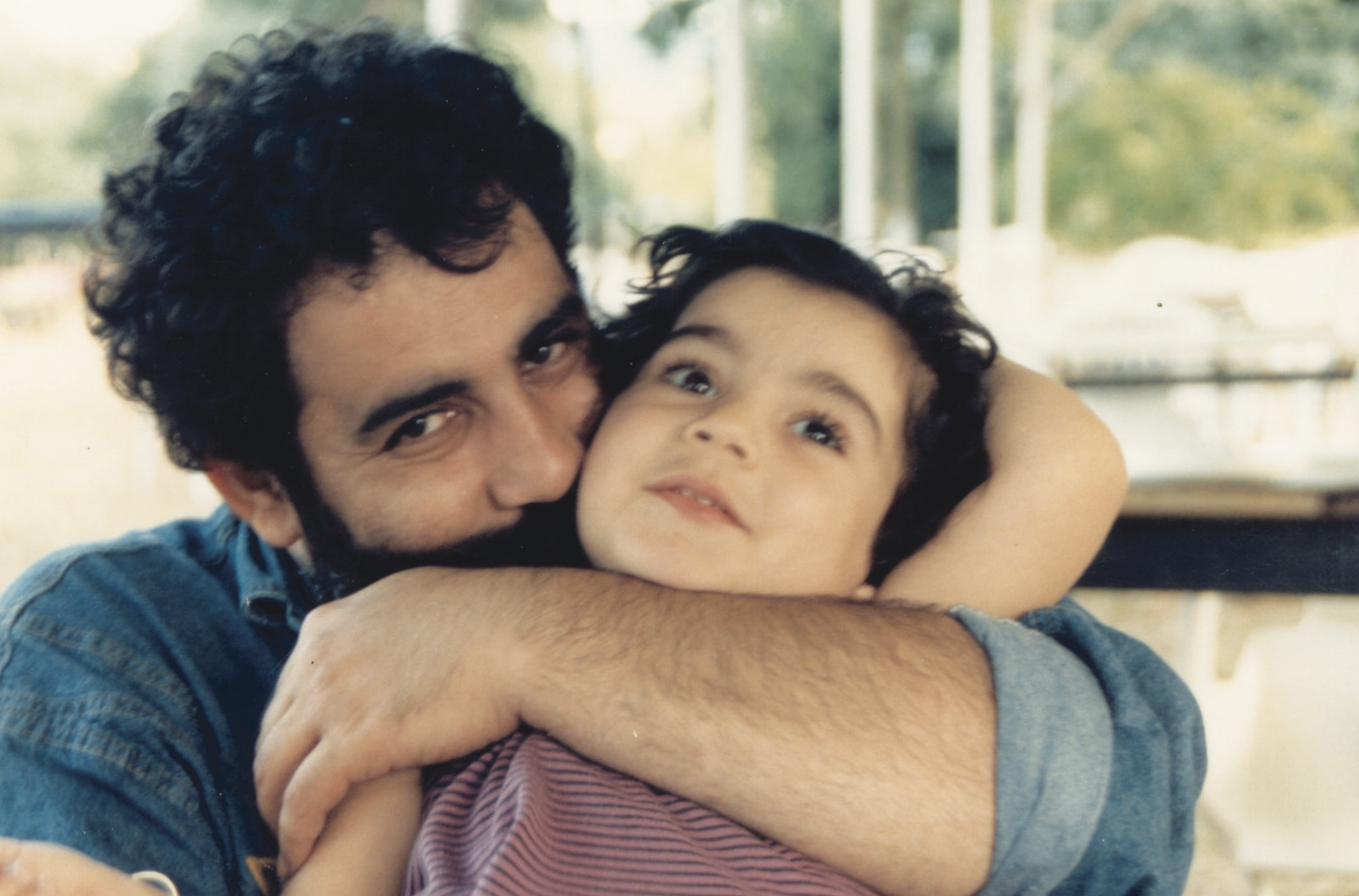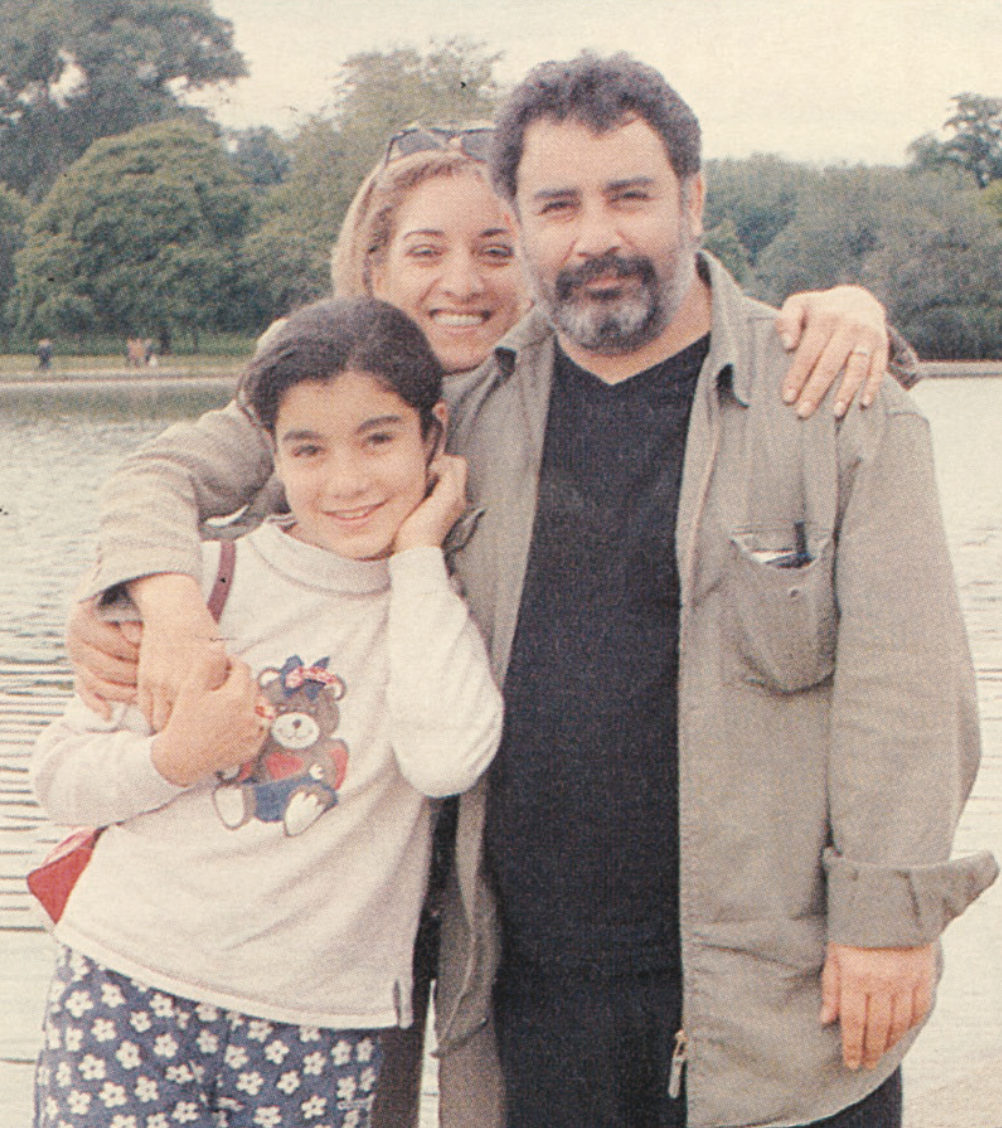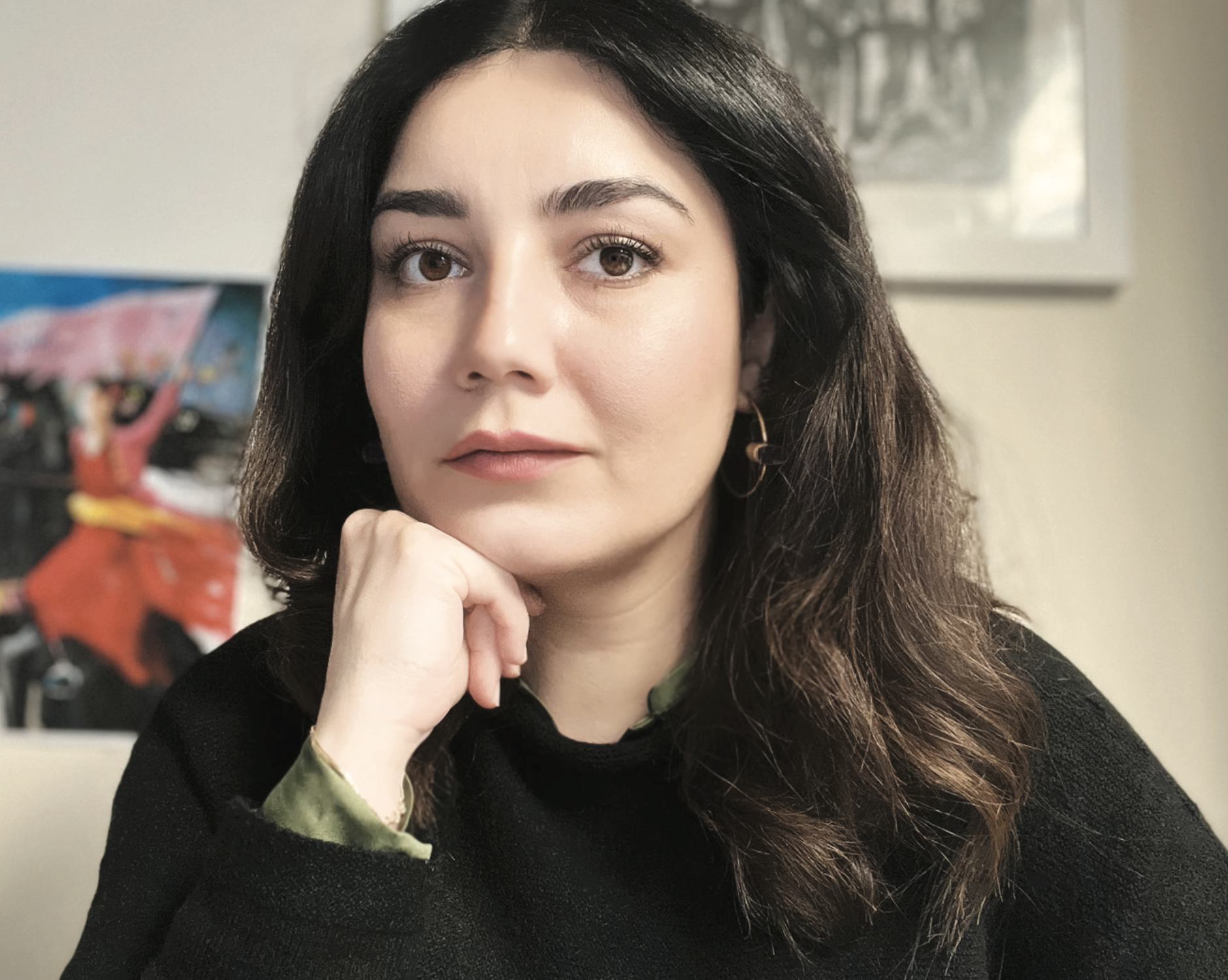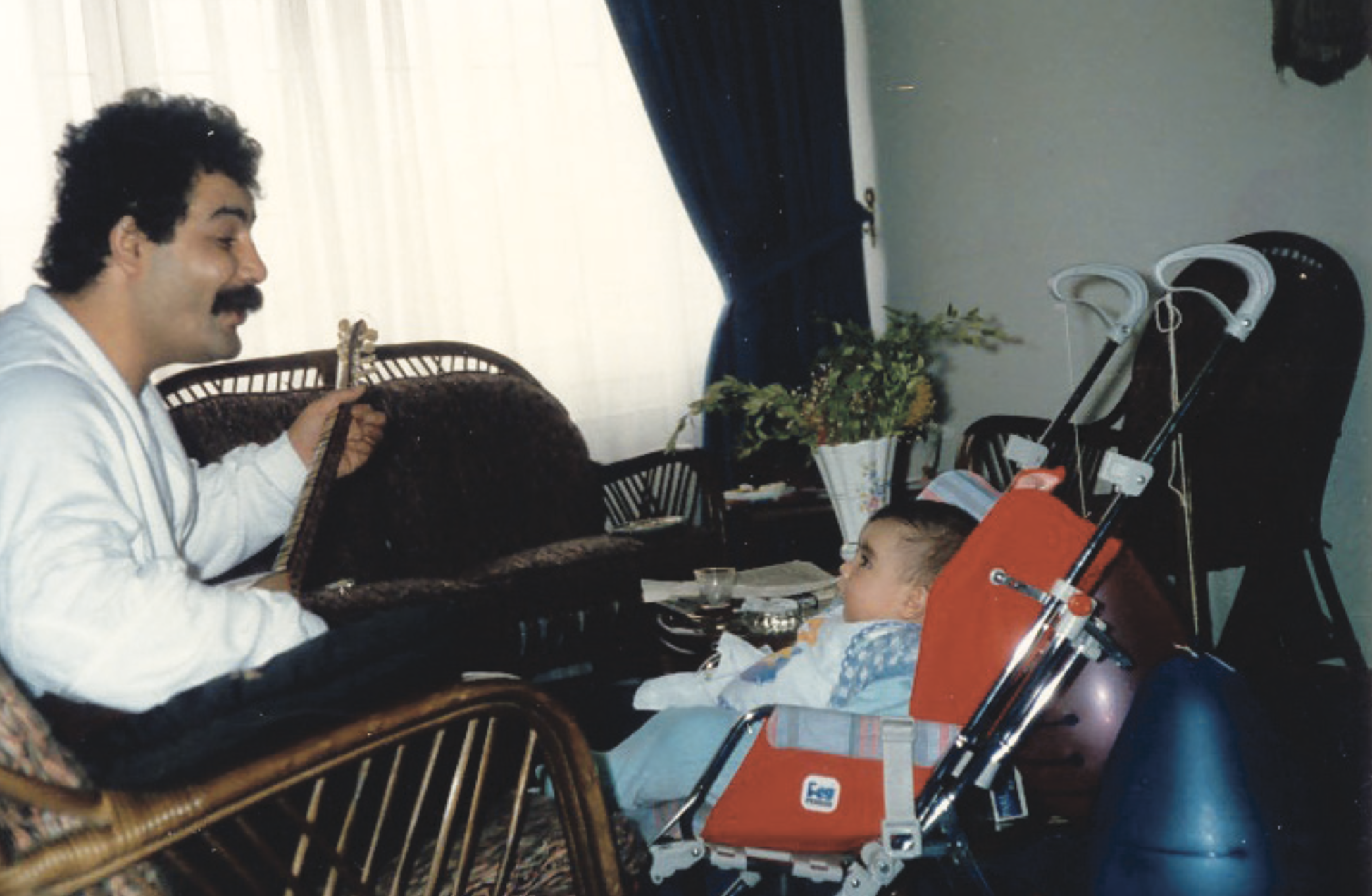On February 11, 1999, at the Magazine Journalists Association award ceremony in Turkey, the musician Ahmet Kaya proclaimed his intention to produce a song in Kurdish. For this, he was widely condemned by Turkish people including celebrities, which prompted him to go into self-exile in Paris, where he died on November 16, 2000. His work, however, continues to be talked about today in the worlds of art, politics, culture, and academy in Turkey and in Kurdistan. People have written several articles, theses, and books about him, and dedicated songs to him. We all have memories, feelings, and ideas about Ahmet Kaya, but on the 23rd anniversary of his death, we wanted to hear about him from his daughter Melis Kaya, who works on human rights and cultural diplomacy as a member of civil society in France.
In the following interview, Kurdistan Chronicle explored what Ahmet Kaya was like as a father, his feelings about literature, his relationship to the Kurdish language, his dreams for Kurdistan and the world.

“He spent his days in exile heartbroken”
Kurdistan Chronicle (KC): We know that your late father, Ahmet Kaya, was a great musician who was appreciated by various segments of society. His albums broke sales records, and his songs were at the top of the charts. Despite this fact, he was condemned for his Kurdish identity and desire to sing in Kurdish, went into exile, and passed away at a very young age. You also experienced this exile with him. What did exile mean to him, and to you?
Melis Kaya (MK): Living in exile is certainly different for everyone. For some, it is a process of self-reconstruction, and for others, it is a price and grief too heavy to bear. Artists must constantly nourish their emotional world in order to produce. Some people only get their inspiration from the land they were born in, and it was the same for my father. A tremendous longing, a feeling of deprivation. It’s also a reset, in every sense. Your life changes overnight just because you say you are Kurdish. You are being bashed. You start your life over again as a nobody, in a country you don’t know. You are no longer the famous Ahmet Kaya on the street. Forget everything you know, the exile says, now you are only responsible for your survival. Unfortunately, my father could not bear all the hatred directed towards him and the exile that was deemed necessary. He spent his days in exile heartbroken, wanting to say, “as a Kurd, I wrote and sang songs for you in your language for years, but I wish I could sing one more in my own language.”

KC: Have you ever visited Southern Kurdistan (the Kurdistan Region of Iraq)?
MK: I visited Erbil, Duhok, and Sulaymaniyah many times. I toured the Doli Balisan region, visited memory centers, martyrs’ cemeteries and other cemeteries. Of course, I will visit again at the first opportunity.
KC: Ahmet Kaya looked tough on the outside but also fatherly. What kind of a father and what kind of a person was he, what did he enjoy doing?
MK: He was an extremely humorous, liberal, relaxed, and affectionate father. He enjoyed sharing. In his private life, he was truly the opposite of the harsh protest image known to the outside world. He had a few hobbies. He used to make wooden carvings in his workshop. For example, he loved playing computer games. He loved animals very much. We had dogs, birds, and fish. One day, on Eid al-Adha, he bought a sheep and brought it home. He told us, “the sheep looks very sad, I can’t have it slaughtered.” Since he could not bring himself to slaughter the sheep, we fed it in the garden for a very long time.
KC: What is your fondest memory of him? How do you remember him?
MK: There are so many memories. He would play games with me and help me with my homework. He never neglected his family even during the busiest times. I think my father was a very special person. He was very kind-hearted, too conscientious for this world. That’s how I remember him the most. I have never known a more kind-hearted person than him in my life.

“He really wanted to learn Kurdish”
KC: As far as I know, other than Xoşnaw Têlo's Karwan, he has not recorded any Kurdish songs professionally. Did he speak Kurdish at home and in daily life? What kind of bond did he have with the Kurdish language?
MK: As you know, my father is the child of a family that migrated to the west of Turkey. He lived part of his childhood and youth in Istanbul. His bond with his mother tongue was already broken at that point. He really wanted to learn Kurdish though. The thing that made him feel incomplete in life was not being able to speak his native language. He always carried the pain of this in his heart, and of course he felt a little anger towards the system. If he knew Kurdish, he would have sung beautiful songs. When he was exiled in Paris, he hired a private tutor and started learning Kurdish.
KC: He composed songs from the poems of Yusuf Hayaloğlu, Orhan Kotan, Ahmet Arif, Can Yücel, Atilla İlhan, Hasan Hüseyin Korkmazgil, Enver Gökçe, Nevzat Çelik, Ahmet Erhan, Sabahattin Ali and many others. How did he feel about poetry?
MK: He had a special bond with poetry. He also wrote poems and composed them into songs. In addition to the poems of all these valuable poets, he also has many songs that he himself wrote.

“He dreamed of a Kurdistan and a world where peace prevailed”
KC: What were his dreams for Kurdistan and the world?
MK: Ahmet Kaya had a dream of Kurdistan and a world where peace prevailed. He dreamed of and struggled for a system without separations or divisions, where freedom of expression and free will would be respected, and politics would be a tool rather than a goal. You can hear the traces of this search and struggle in his music.
KC: How does it feel to be the daughter of a musician? Are you also interested in making music?
MK: I grew up with music and art. This contributed a lot to me, giving me many different perspectives of the world. I played classical piano for several years, but I am not a professional musician and do not plan to be.
KC: Everyone has a favorite Ahmet Kaya song, which is your favorite album or song?
MK: I really can’t choose. I guess I have different favorite songs for every mood and every emotion. Whatever emotion I’m feeling at that moment, I turn on the song of that emotion and listen to it. Each song of his is unique and very special.
KC: The Kurdish Institute of Paris has an extensive archive of materials about the Kurds. Is Kurdistan Chronicle also available there?
MK: I attach great importance to the Kurdish print media and conventional media. Kurdistan Chronicle reaches us regularly and as a reader, I would like to congratulate the entire team. I wish you success with every issue you prepare.
About Melis Kaya
Born in Istanbul in 1987, Melis Kaya graduated from Istanbul Bilgi University Faculty of Communication in 2009. She went to Paris that same year. She studied French at Sorbonne University and completed her master’s degree at the School of Advanced Studies in the Social Sciences (EHESS). She studied human rights and cultural diplomacy practices in the field of civil society and translated articles from French to Turkish and English. The articles she wrote were published in Agos newspaper, published in Turkish and Armenian. As a member of civil society, she currently works on Kurdish society, language, culture, and domestic and foreign diplomacy.
Mevlüt Oğuz is a journalist, poet, and activist working in the fields of civil society, culture, and the arts. He is a member of the International Federation of Journalists (IFJ), the Kurdish PEN affiliated to International PEN, and the Istanbul branch of the Human Rights Association (İHD).

